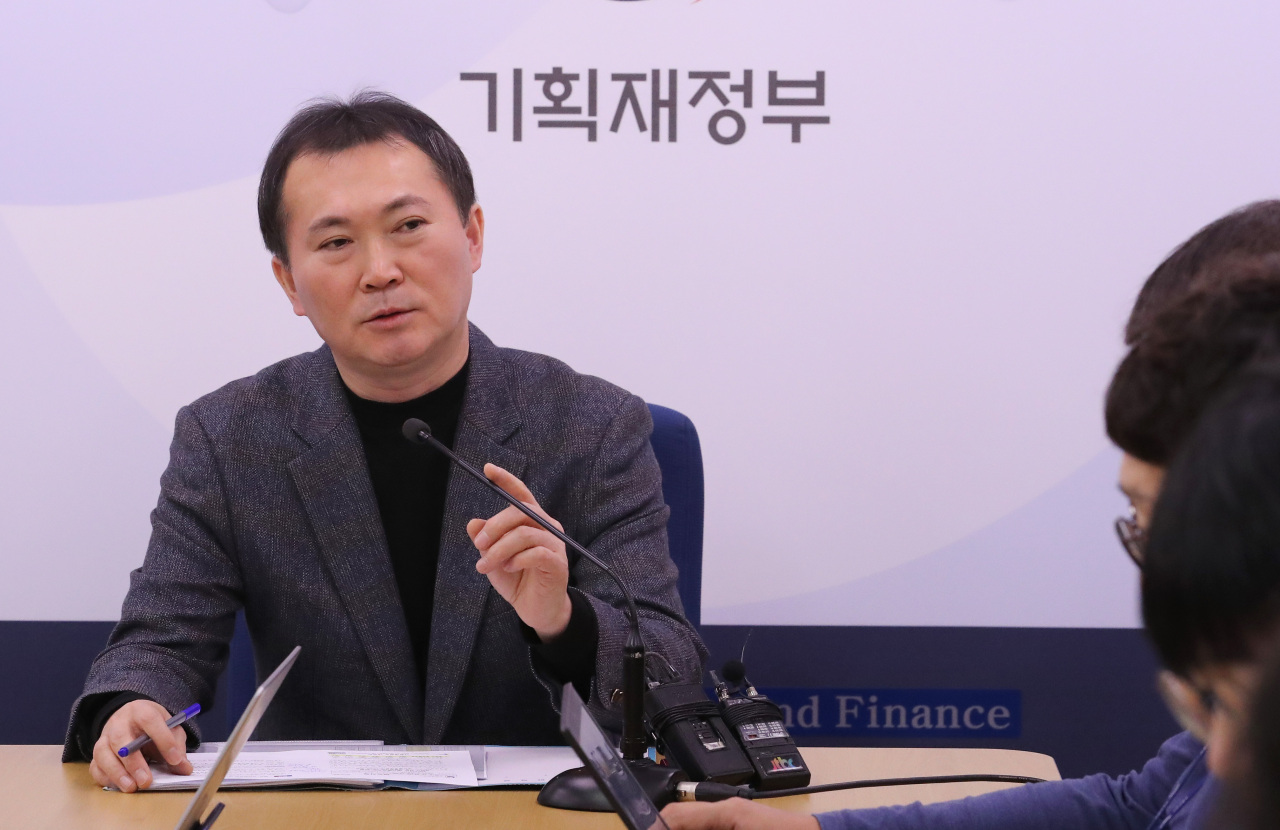The South Korean government on Tuesday vowed to further accelerate its fiscal spending next year, seeking to revitalize the economy following years of sluggish growth.
The Ministry of Economy and Finance confirmed the fiscal allocation plan for 2020 at a Cabinet meeting under the chairmanship of Prime Minister Lee Nak-yon.
Under the fiscal program, 71.4 percent of the annual expenditure or 305 trillion won ($262 billion) out of 414.1 trillion won has been allocated for the January-June period -- the highest level of front-loading in seven years.
This portion of the budget is heavily concentrated on job creation, infrastructure and research and development projects to seek new growth sources, reflecting the government’s strong push to boost the economy.
 |
Kim Myung-joong, chief budget officer at the Ministry of Economy and Finance, holds a press briefing at Sejong Government Complex on Tuesday. (Yonhap) |
Obscuring the government’s fiscal spending timeline is the legislative delay for accompanying bills -- worth 4.7 trillion won in total. The currently pending bills include a special accounting act to execute the government’s 2.1 trillion won budget to enhance the competitiveness of domestic industries in light of Japan’s curbs on Korea’s key export items.
“In principle, (the ministry) will start (its budget allocation plan) once the National Assembly confirms it,” said Kim Myung-joong, the Finance Ministry’s chief budget officer, in a press briefing.
Though a number of accompanying bills are still pending, it is legitimate for the ministry to move on to the detailed allocation for next year’s fiscal spending, the official noted.
Asia’s fourth-largest economy is expected to expand 2.4 percent next year, up slightly from this year’s estimated 2 percent growth, on the back of the global economic uptrend and recovery of the memory chip market. The latest “phase one” trade deal between the US and China is also likely to serve as positive variable, according to the ministry.
The Cabinet also approved a series of tax benefits to encourage consumption.
One of the measures was to lower the consumption tax rate by 70 percent for those who scrap vehicles aged 10 years or more. The temporary tax cut for all-electric and hydrogen fuel cell electric cars will be extended to 2022.
While large companies will see their tax deduction rate for facility spending raised to 2 percent from 1 percent, the corresponding rate for small and medium-sized firms will be increased to 10 percent, the ministry said.
By Bae Hyun-jung (
tellme@heraldcorp.com)




![[Herald Interview] 'Trump will use tariffs as first line of defense for American manufacturing'](http://res.heraldm.com/phpwas/restmb_idxmake.php?idx=644&simg=/content/image/2024/11/26/20241126050017_0.jpg)

![[Health and care] Getting cancer young: Why cancer isn’t just an older person’s battle](http://res.heraldm.com/phpwas/restmb_idxmake.php?idx=644&simg=/content/image/2024/11/26/20241126050043_0.jpg)

